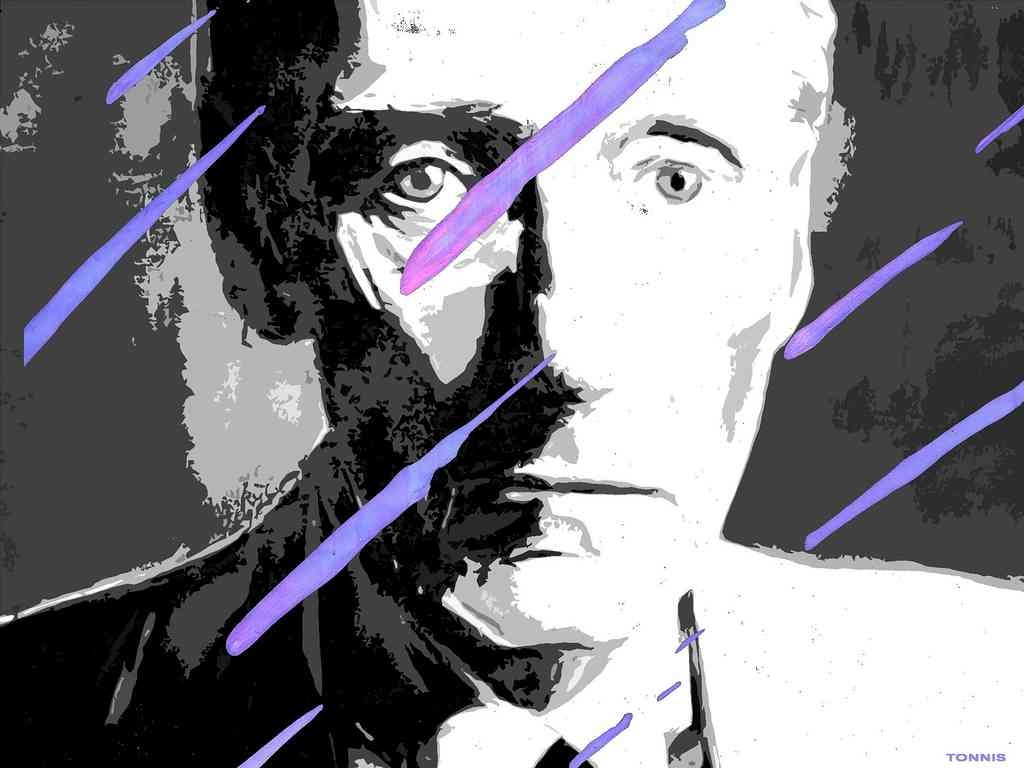Image via Christiaan Tonnis
Like many of the best countercultural icons, William S. Burroughs had at least two separate periods of underground fame. The first came in the late 1950s and 60s when he wrote such classics-to-be of Beat literature as Junkie, Naked Lunch, and the “cut-up” trilogy of The Soft Machine, The Ticket That Exploded, and Nova Express. The second came in the 1980s and 90s, when a new wave of countercultural icons, themselves raised on Burroughs’ writing, came of age and sought out their hero for collaboration.
“How a novelist with no musical background who began his career in the 1940s became so popular an alternative music figure that Kurt Cobain backed him up on one of Cobain’s last recordings is one of the odder, more fascinating footnotes in this otherwise heavily examined musical era,” says Music for Maniacs.
Many rockers who looked up to Burroughs attended his live readings, but for some, “it wasn’t enough to just listen to Burroughs read his own works, with increasingly elaborate musical backings, but to hire him to perform on recordings. And that is what we have here: not Burroughs’ own releases, but his various miscellaneous appearances on other bands’ songs.”
Above, hear Burroughs with Tom Waits on jazz tune “T’Ain’t No Sin” and with Ministry on “Quick Fix.” You can listen to all of these recordings, in which Burroughs records with or covers the material of REM, The Doors, Laurie Anderson, Marlene Dietrich, Kurt Cobain, and others, at Ubuweb. The playlist runs as follows. Click to listen:
- Fuck Me Kitten (with REM, from “Songs in the Key of X: Music from and Inspired by ‘the X‑Files’ ” — 1996)
- Is Everybody In? (with The Doors, reciting Jim Morrison poetry, from “Stoned Immaculate: The Music of the Doors”)
- Sharkey’s Night (with Laurie Anderson, from “Mister Heartbreak” — 1983)
- What Keeps Mankind Alive (from Kurt Weill tribute album “September Songs”)
- ‘T ‘Aint No Sin (1920s jazz song, performed on Tom Waits’ “The Black Rider” — 1993)
- Quick Fix (w/Ministry, “Just One Fix” b‑side — 1992)
- Old Lady Sloan (w/The Eudoras, covering a song by a Lawrence, Kansas punk band from “The Mortal Micronotz Tribute!” — 1995
- Ich Bin Von Kopf Bis Fub Auf Liebe Eingestellt (Falling In Love Again) — Marlene Deitrich cover, from “Dead City Radio” — 1988
- The “Priest” They Called Him — (w/Kurt Cobain, 1992)
Not only do performers like Burroughs rarely enjoy a two-act career like his, they hardly ever put out material as odd in their last act as they did in their first. But nothing in the life of the “rock star to rock stars,” as Music for Maniacs calls him, happened in the traditional matter. And once you get through his stint as an alternative rock star, do have a look at his stint as an alternative performer on the silver screen.
via Ubuweb
Related Content:
William S. Burroughs “Sings” R.E.M. and The Doors, Backed by the Original Bands
Patti Smith Shares William S. Burroughs’ Advice for Writers and Artists
The Making of Drugstore Cowboy, Gus Van Sant’s First Major Film (1989)
Gus Van Sant Adapts William S. Burroughs: An Early 16mm Short
Colin Marshall writes on cities, language, Asia, and men’s style. He’s at work on a book about Los Angeles, A Los Angeles Primer, and the video series The City in Cinema. Follow him on Twitter at @colinmarshall or on Facebook.



Hell, he wrote the whole book for The Black Rider, a musical directed by Robert Wilson with music by Tom Waits.
He also whored himself out for a Nike commercial in the mid-1990s, when it was well known Nike was pushing its shoes to kids in the US ghettos while taking all the jobs away from lower-income US families and sending them to sweatshops overseas.
Check out his work with Bill Laswell’s Material, particularly the ‘Seven Souls’ album, based largely on the ancient Egyptian concept of the human soul. Good stuff, I especially recommend the track “Soul Killer” wherein Burroughs suggests that human souls could not survive a nuclear explosion…chilling, weather you belive in the soul or not.
On Youtube:
https://www.youtube.com/watch?v=qOYvcnal1Sk